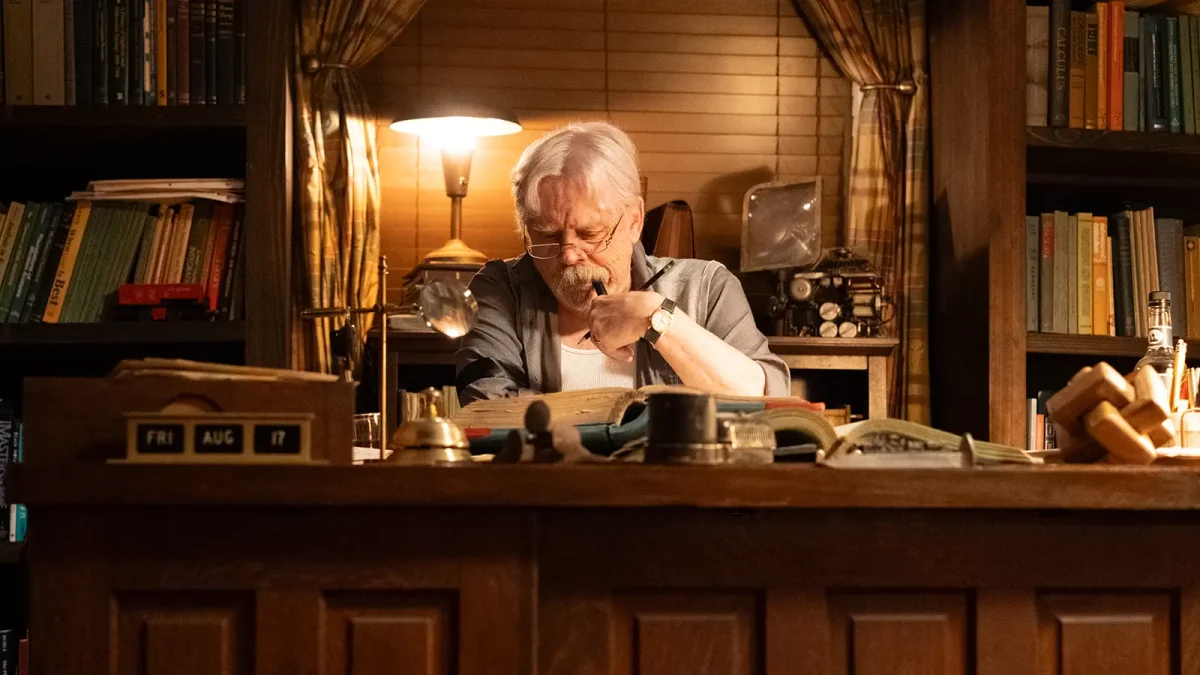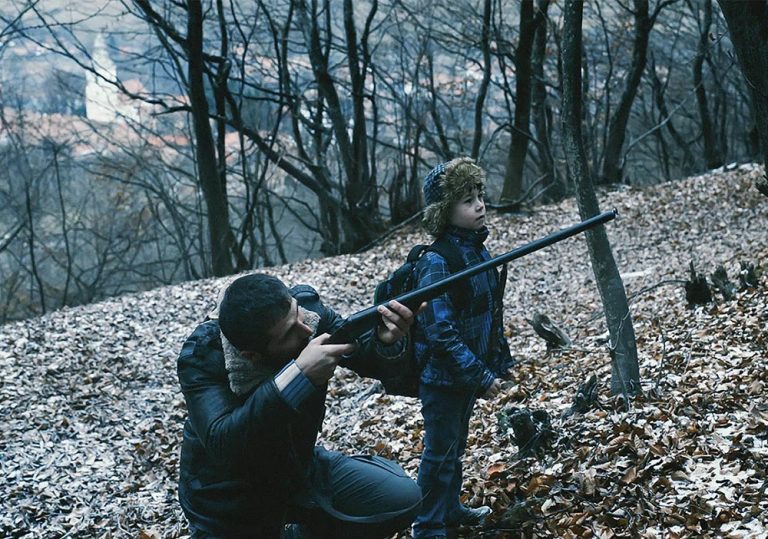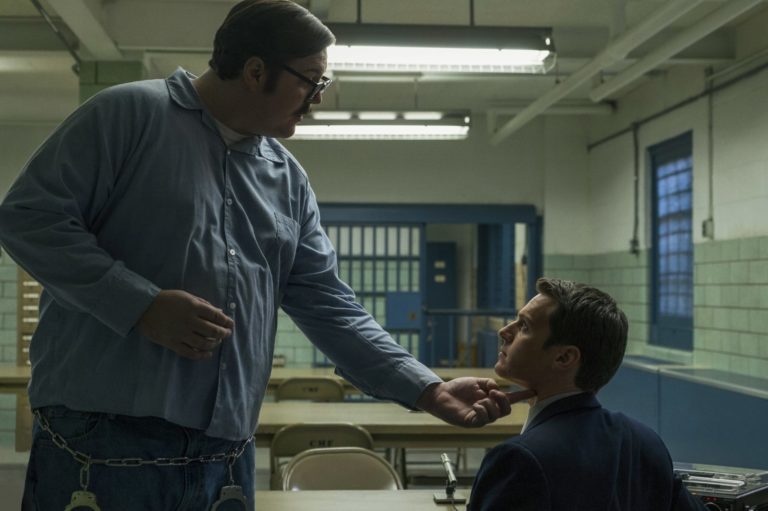While his name is often associated with some of the most terrifying moments in modern popular culture, Stephen King’s work as an author is not inherently tied to the horror genre. King has always shown an interest in the perception of time, and generally uses supernatural components to rationalize existentialist questions. This is perhaps what has drawn Mike Flanagan to adapt his writing on such a regular basis, as he is a filmmaker who has benefited from emotional maturity, even when life itself seems irrational.
“The Life of Chuck” is loosely inspired by a 2020 novella written by King, which examines the life of a seemingly “average” man and the impact he had on his family, community, and strangers. Although King’s short story followed a sequential series of moments, building suspense as the worldbuilding grew more gloomy, Flanagan’s film is told in reverse. The viewer is aware of how Chuck’s story will end, and must spend time “waiting” to learn why he is of such importance. While this structure is generally conducive to a straightforward mystery, Flanagan is fixated on the small moments that have a ripple effect through time.
Initially, Flanagan’s approach is off-putting, as the world he’s created is both strikingly familiar and aggressively condensed. The world has finally approached its inevitable collapse, as a combination of environmental anomalies, technological breakdowns, and societal fissures has inspired a collective sense of dread that has spread throughout the globe. Making his way in a time without hope is the kind-hearted teacher Marty Anderson (Chiwetel Ejiofor), who receives a surprising message from his ex-wife, Felicia Gordon (Karen Gillan).

It’s not an apocalyptic vision that is epic, as the meltdown imagined is one that could easily have been anticipated based on the trajectory of recent events. Yet, Flanagan doesn’t need to flash throughout the globe to explore the various nightmares that have occurred, as information in “The Life of Chuck” is conveyed almost exclusively through dialogue. Nick Offerman voices an unseen narrator that describes the inner thoughts of the protagonists (presented in a way that feels like the omnipresent, third-person text of King’s writing), but a significant amount of exposition is revealed through conversations.
What could have been a narrative crutch is the greatest virtue of “The Life of Chuck.” Flanagan is interested in the way that information is both framed and spread, as it takes a human voice to give meaning to fundamental truths. The exact progression of time can be rationalized or described using math, but the human mind has the ability to draw connections, analyze patterns, and create a story out of what may be random events. The vague references to the character Chuck, played by Tom Hiddleston as a 39-year-old man, transition into the thrust of the narrative once Flanagan begins winding the clock backwards.
Also Read: The 10 Best Stephen King Film Adaptations
The notion of an extraordinary person giving hope to “lost souls” is not an uncommon one in King’s work, as parallels could be made between Chuck and Andy Dufresne from “The Shawshank Redemption,” John Coffey in “The Green Mile,” or Chris Chambers in “Stand by Me.” However, Flanagan never opts for a saccharine approach, as Chuck’s curiosity and compassion are remarkable as a result of the tragedy that has permeated his entire life.
The film begins with the analysis of a collective loss of will, in which the pillars of society have toppled as humanity waits for its inevitable end. The subsequent narrative is centered on Chuck’s personal journey, as each compromise he makes chips away at the optimistic spirit he possessed as a child.
It’s this surrounding gloominess that makes “The Life of Chuck” so moving as it reflects upon memories that endure, even if they are tinged by the weight of tragedy. Although the reunion of Marty and Felicia is a direct alternative to the traditional “meet cute,” many of the most powerful moments in “The Life of Chuck” are between people who spend mere moments in each others’ lives; even if they’re acquaintances, casual contemporaries, or strangers, the people that Chuck meets are changed as a result of his earnest desire to be remembered.
It’s a motivation that could have made Chuck feel either self-aggrandizing or far too sensitive, but the film’s brilliance is its fearless speculation about the unknown. Chuck’s understanding of the future doesn’t bind him to an unshakeable fate, as it instead serves as inspiration to “get busy living” (as another King character famously said).

The modesty of Flanagan’s production is also quite profound, as there is a deliberate attempt to keep era-specific details ambitious. Thematically, they aren’t relevant to the progression of Chuck’s emotional development. As seen within his previous work on both “Gerald’s Game” and “Doctor Sleep,” Flanagan is able to raise questions when King’s work is perhaps too cleanly mapped out with its extended universe. Although some may ascribe supernatural or metaphorical explanations to recurring imagery in “The Life of Chuck,” Flanagan utilizes a method of storytelling that meets its audience based on their comfort level with the definitive.
Flanagan’s work on prestige television has been praised for its dialogue, as he often gives his characters the type of extended monologues that any aspiring actor would fantasize about delivering. There are many standout passages in “The Life of Chuck,” including those of a wise local treasurer (Carl Lumbly), a free-spirited teacher (Kate Siegel), and a sensitive next-door neighbor (Matthew Lillard).
While there is specificity and inventiveness in each of these performances, the most powerful acting in “The Life of Chuck” comes from Mark Hamill, who plays the pivotal role of Chuck’s grandfather. Hamill’s decades of experience as a vocal artist have made him unparalleled in his ability to hold the attention of a captive viewer, and thus it was brilliant to cast him as an aging, pensive storyteller.
Sentimentality is often taken as a negative, but “The Life of Chuck” has the boldness to suggest there is meaning to the madness. Despite the poignancy of its simply technical aspects, “The Life of Chuck” often glows with energy when it takes the time to be either stupendously bombastic or obtusely existential. Each of its three distinct acts may have made for a minor masterpiece that gave credence to unique feelings that are often not under discussion. However, they are united by Flanagan into a kaleidoscopic meditation on time that may rank as his greatest achievement thus far as a filmmaker.






![The Nightingale [2019] Review: As Misguided As It Is Polarizing](https://79468c92.delivery.rocketcdn.me/wp-content/uploads/2019/11/the-nightingale-jennifer-kent-768x403.jpg)
![Kia and Cosmos [2019]: ‘Glasglow Film Festival’ Review](https://79468c92.delivery.rocketcdn.me/wp-content/uploads/2019/02/Kia_And_Cosmos_HOF1-768x502.jpg)
